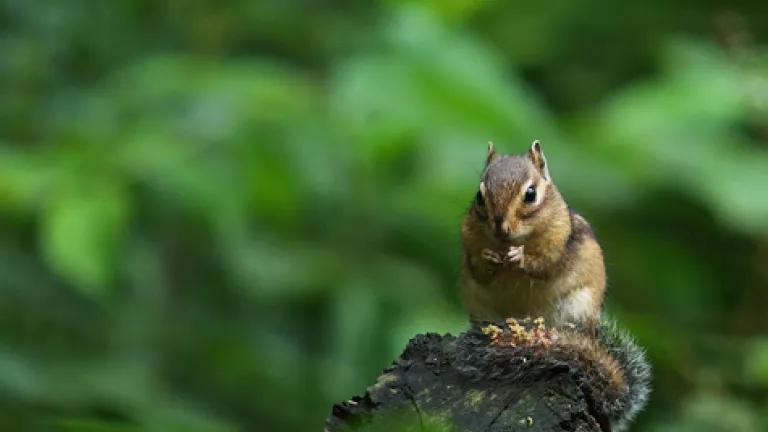"Each creature has its own purpose" -- Pope Francis on the moral imperative to preserve biodiversity during the Sixth Extinction

Last week, just about the same time that Pope Francis released a groundbreaking Encyclical outlining the Catholic Church's teaching on protecting the natural world, a team of scientists released sobering report of their own. Concluding that "the average rate of vertebrate species loss over the last century is up to 114 times higher than the background rate," the authors warned in a study published in the journal Science Advances, that "these estimates reveal an exceptionally rapid loss of biodiversity over the last few centuries, indicating that a sixth mass extinction* is already under way." Reading both documents together was a helpful reminder of why I work in conservation.
Too often environmental issues get caught up in the maelstrom of politics and policy. But at its root, conserving the earth is more about values and responsibilities than it is about cost-benefit analyses and legal disputes. Pope Francis' encyclical was a helpful tonic -- a reminder, to me at least, that what animates the environmental movement, as it does all great social movements, is a moral call to action. And last week's study reminded me that nowhere is that call to action more clear than when it comes to saving the life around us.
Again and again in his Encyclical, the Pope emphasizes the interconnectedness of all things. Drawing from ecology and the other sciences, the Pope concludes that "living species are part of a network which we will never fully explore and understand." Not only does the Pope emphasize the many practical benefits that these networks provide humanity, but their very existence also forms part of the moral case for keeping the rich array of plants and animals intact: "Because all creatures are connected, each must be cherished with love and respect, for all of us as living creatures are dependent on one another."
But the Pope does not stop with a call to preserve ecological systems. He also focuses on the inherent value of individual living beings. Citing biblical passages and Christian traditions that stress the inclusion of other animals in the moral threads that knit a community together (did you know, for example, that Exodus requires domesticated animals to be given a rest on the Sabbath?), the Pope comes to a remarkable conclusion:
Each creature has its own purpose. None is superfluous. ...The ultimate purpose of other creatures is not to be found in us. Rather, all creatures are moving forward with us and through us towards a common point of arrival, which is God.
Yet as last week's study reveals, humankind is depriving whole species from fulfilling their purpose, not only ecologically but, if one is moved by the Pope's teaching, spiritually as well. Extinction, unlike so many of the other ills that afflict our earth (even climate change) cannot be reversed. Humanity needs to do all it can to limit the damage we've done and save as many creatures as possible: for their sake.
--
* There are thought to have been five previous "mass extinction" events in the Earth's history, which is generally defined as a widespread and rapid decrease in the diversity and abundance of macroscopic life. The last mass extinction led to the extinction of the dinosaurs.

